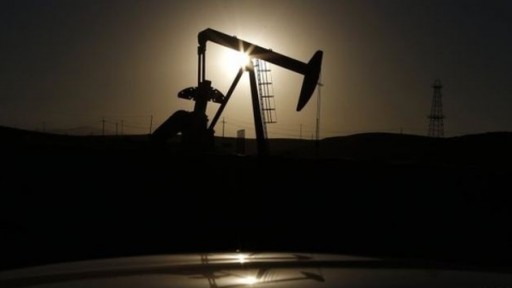- Home
- >
- Commodities Daily Forecasts
- >
- IEA: Why the worst is not necessarily over for oil

IEA: Why the worst is not necessarily over for oil

While oil prices have "recovered remarkably" in recent weeks, this should not "be taken as a definitive sign that the worst is necessarily over," the International Energy Agency (IEA) warned Friday.
"Even so, there are signs that prices might have bottomed out," the IEA said in its latest monthly report published on Friday echoing oil markets which have seen a recovery in recent weeks on the back of a weaker dollar which helps to fuel demand.
"For prices there may be light at the end of what has been a long, dark tunnel, but we cannot be precisely sure when in 2017 the oil market will achieve the much-desired balance," the IEA cautioned.
"It is clear that the current direction of travel is the correct one, although with a long way to go. Without an increase in demand expectations, high-cost oil suppliers will continue to bear the brunt of the market-clearing process."
On Friday, benchmark Brent crude futures were trading at $40.81 a barrel (up from the $32.80 a barrel last month when the IEA published its report). U.S. crude was also higher, at $38.69 a barrel.
At the start of the year, prices tumbled to around $26 a barrel as supply continued to outstrip demand. But there are signs that prices could have finally bottomed out, the IEA said. These included: "possible action by oil producers to control output; supply outages in Iraq, Nigeria and the United Arab Emirates; signs that non-OPEC supply is falling; no reduction in our forecast of oil demand growth; and recent weakness of the US dollar."
The IEA maintained its forecast for global oil demand growth for 1.2 million barrels a day (mb/d) in 2016, unchanged from last month. It said there had been a "sharp deceleration in demand growth in the three months to March, particularly in the US and China.
Speculation has been high that oil producers from both OPEC (the 12-country group led by Saudi Arabia) and non-OPEC countries (such as the U.S. and Russia among others) were due to meet March 20 to discuss a possible output freeze.
However, a report from Reuters Thursday appeared to pour cold water on this. Citing sources familiar with the matter, the report said that as OPEC member Iran was yet to say whether it would participate in such a freeze, the meeting was unlikely to go ahead.
Iran could be forgiven for not wanting to cut output when it has only just started producing again after years of western sanctions for its nuclear program halted its oil industry and economy. Keen to recover its market share, it might not be happy to cut output and other major producers, such as Kuwait, have said they will only commit to the deal if Iran does.
Furthermore, the IEA was not optimistic that any deal, if reached at all, would affect the supply and demand equation much
"We cannot know what this might be and in any event it is rather unlikely that an agreement will affect the supply/demand balance substantially in the first half of 2016," it said.
"Before any production freeze or cut is agreed, we have seen supply disruptions in Iraq, Nigeria and UAE. Production from these countries fell in February by 350,000 barrels a day. Meanwhile, Iran's return to the market has been less dramatic than the Iranians said it would be; in February we believe that production increased by 220,000 b/d and, provisionally, it appears that Iran's return will be gradual."
In the meantime, global oil supplies are easing with non-OPEC production continuing to fall. Non-OPEC producers such as those in the U.S. and Canada tend to have far higher production costs than OPEC producers and have tried to mitigate lower oil prices by cutting production and exploration.
Such moves have had a knock-on effect on lowering non-OPEC oil supply but the reduction has been made up by OPEC supply gains, seen as a strategy by OPEC to maintain market share.
Global oil supplies eased by 180,000 b/d in February, to 96.5 mb/d, on lower OPEC and non-OPEC output, the IEA said, but production stood 1.8 mb/d above a year earlier, "as a slight decline in non-OPEC was more than offset by OPEC gains."
The IEA forecast that non-OPEC production is estimated to fall by 750,000 barrels a day to 57.0 mb/d in 2016 which is 100,000 barrels a day less than in last month's report.
"Of course, there is no guarantee that this trend will continue, but there are clear signs that market forces – ahead of any production restraint initiative – are working their magic and higher cost producers are cutting output," the IEA noted.
CNBC
 Varchev Traders
Varchev Traders Read more:
If you think, we can improve that section,
please comment. Your oppinion is imortant for us.











